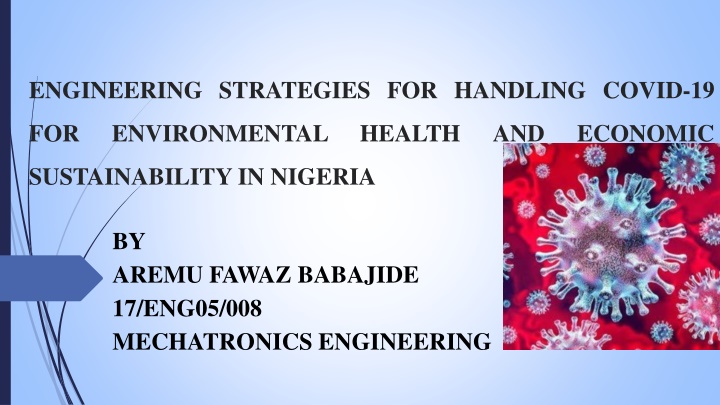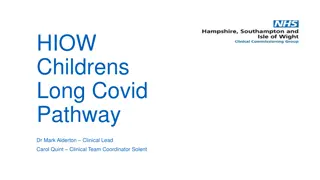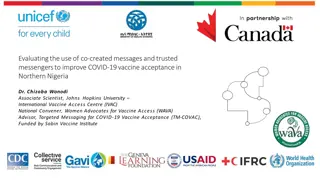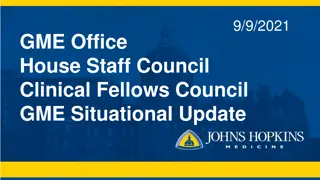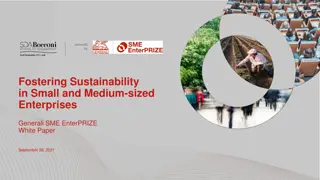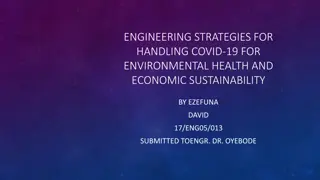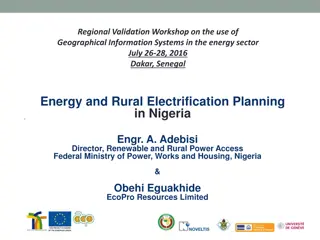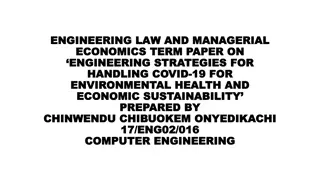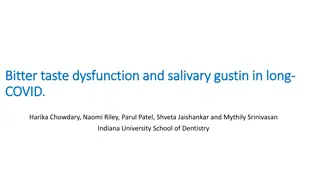Strategies for Handling COVID-19 in Nigeria for Sustainability
Coronavirus disease (COVID-19) presents challenges for environmental health and economic sustainability in Nigeria. This article delves into preventive measures, economic effects, and recommendations to stabilize the economy.
Download Presentation

Please find below an Image/Link to download the presentation.
The content on the website is provided AS IS for your information and personal use only. It may not be sold, licensed, or shared on other websites without obtaining consent from the author.If you encounter any issues during the download, it is possible that the publisher has removed the file from their server.
You are allowed to download the files provided on this website for personal or commercial use, subject to the condition that they are used lawfully. All files are the property of their respective owners.
The content on the website is provided AS IS for your information and personal use only. It may not be sold, licensed, or shared on other websites without obtaining consent from the author.
E N D
Presentation Transcript
ENGINEERING STRATEGIES FOR HANDLING COVID-19 FOR ENVIRONMENTAL HEALTH AND ECONOMIC SUSTAINABILITY IN NIGERIA BY AREMU FAWAZ BABAJIDE 17/ENG05/008 MECHATRONICS ENGINEERING
Table of contents Title page Table of contents Introduction the symptoms of coronavirus Causes of COVID-19 The Risk Factor of COVID-19 Preventive measures for COVID-19 disease for environmental health and economic sustainability The effect of covid-19 on nigeria s economic stability Recommendations on how to stabilize the economy Conclusion References
Introduction Coronavirus disease (COVID-19) is an infectious disease caused by a newly discovered coronavirus. Most people infected with the COVID-19 virus will experience mild to moderate respiratory illness and recover without requiring special treatment. Older people, and those with underlying medical problems like cardiovascular disease, diabetes, chronic respiratory disease, and cancer are more likely to develop serious illness. The best way to prevent and slow down transmission is be well informed about the COVID-19 virus, the disease it causes and how it spreads. Protect yourself and others from infection by washing your hands or using an alcohol based rub frequently and not touching your face.
Symptoms Signs and symptoms of COVID-19 may appear two to 14 days after exposure and can include: Fever Cough Shortness of breath or difficulty breathing Other symptoms can include: Tiredness Aches Runny nose Sore throat Some people have experienced the loss of smell or taste. The severity of COVID-19symptoms can range from very mild to severe. Some people may have no symptoms at all. People who are older or who have existing chronic medical conditions, such as heart disease, lung disease or diabetes, or who have compromised immune systems may be at higher risk of serious illness. This is similar to what is seen with other respiratory illnesses, such as influenza. provide updated information as soon as clinical findings become available
Causes Infection with the new coronavirus (severe acute respiratory syndrome coronavirus 2, or SARS-CoV-2) causes coronavirus disease 2019 (COVID-19). It's unclear exactly how contagious the new coronavirus is. Data has shown that it spreads from person to person among those in close contact (within about 6 feet, or 2 meters). The virus spreads by respiratory droplets released when someone with the virus coughs, sneezes or talks. It can also spread if a person touches a surface with the virus on it and then touches his or her mouth, nose or eyes. Risk factors Risk factors for COVID-19 appear to include: Recent travel from or residence in an area with ongoing community spread of COVID-19 as determined by CDC or WHO Close contact with someone who has COVID-19 such as when a family member or health care worker takes care of an infected person
Preventive measures for COVID-19 disease for environmental health and economic sustainability Based on the available evidence, the COVID-19 virus is transmitted between people through close contact and droplets, not by airborne transmission. The people most at risk of infection are those who are in close contact with a COVID-19 patient or who care for COVID-19 patients. Preventive and mitigation measures are key in both healthcare and community settings. The most effective preventive measures in the community include: performing hand hygiene frequently with an alcohol-based hand rub if your hands are not visibly dirty or with soap and water if hands are dirty; avoiding touching your eyes, nose and mouth; practicing respiratory hygiene by coughing or sneezing into a bent elbow or tissue and then immediately disposing of the tissue; wearing a medical mask if you have respiratory symptoms and performing hand hygiene after disposing of the mask; maintaining social distance (a minimum of 1 m) from individuals with respiratory symptoms.
THE EFFECT OF COVID-19 ON NIGERIAS ECONOMIC STABILITY The Coronavirus (COVID-19) has resulted in mass production shutdowns and supply chain disruptions due to port closures in China, causing global ripple effects across all economic sectors in a rare twin supply-demand shock . With South Africa having just reported its first cases of COVID-19, Africa is beginning to feel its full impact and plans to control and manage the humanitarian challenges of the virus are underway across the continent. Economically, the effects have already been felt demand for Africa s raw materials and commodities in China has declined and Africa s access to industrial components and manufactured goods from the region has been hampered. This is causing further uncertainty in a continent already grappling with widespread geopolitical and economic instability.
RECOMMENDATIONS ON HOW TO STABILIZE THE ECONOMY 1. Perhaps most importantly, there is a need to address the biggest elephant in the room: Nigeria s reliance on the sale of crude oil as the major source of the nation s foreign exchange earnings. There is a need to diversify the nation s economy away from a reliance on crude oil. 2. Adequately support the healthcare system: Prior to COVID-19, healthcare institutions were already overburdened with many ailments given poor medical supplies, shortage of medical workers and poor infrastructure.
3. Provide incentives and safety nets to the most affected: Through targeted tax incentives, social transfers, and regulatory support, the Nigerian government could help minimize the impact of COVID-19 on the most vulnerable businesses and citizens.
CONCLUSION A big problem in developing and implementing sustainable economic policies is poor awareness. It is difficult to drive a concept that is not well understood bythe citizens and government workers of the country. This probably explains why sustainable development is not a core element in the mission statement of most governmental organizations surveyed. Another factor militating against the development and implementation of economic stability is poor support from the government in driving the sustainability agenda.
This is evident in the absence of relevant laws and regulations to drive sustainability especially in the construction sector. Inadequate support for sustainable construction by leaders of construction organizations also militates against the development and implementation of sustainable construction. This could be because the concept is not well understood. The major perceived benefit of sustainable construction is that sustainable construction improves organizations environmental sustainability. Respondents view sustainability more in terms of environmentally sustainability.
References https://www.who.int/health- topics/coronavirus?fbclid=IwAR3iZ5pr4MHevxFmNBBKwfu4Szh5N8- n_pmao_4iexoFfaeEuj3Aahs64bk https://openwho.org/courses/COVID-19-IPC-EN https://www.cdc.gov/coronavirus/2019- ncov/index.html?CDC_AA_refVal=https%3A%2F%2Fwww.cdc.gov%2 Fcoronavirus%2Findex.html
